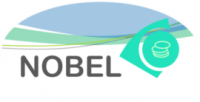NOBEL includes consumers and end-users in developing and proofing novel strategies and methods to support forestry for remaining competitive and efficient providers of sustainable products and services. It considers a value-chain approach and applies monetary and non-monetary economic valuation methods (e.g. cost-based and multi-objective preference-based methods) to assess preferences of consumer and providers regarding the provision of forest ecosystem services (FES) in Europe and identify innovative sustainable management concepts for multi-functional forest management.

Cost-efficient methods to predict quantifying FES are developed using remote sensing technologies (e.g. airborne laser and COPERNICUS data. Costs for providing ES and expected societal benefits will be assessed under possible future conditions via case studies (pilot demonstrations) across Europe. NOBEL will analyse public and private financing mechanisms for enhancing FES provision and related societal benefits in Europe, develop options for market-based mechanisms, present best practice examples, and prepare strategies and guidelines for policy-makers to implement new mechanisms and to foster stakeholder satisfaction.
The use of advanced multi-objective forest management planning and optimization tools will show to landowners and managers the capacities to provide FES and at the same time inform them about trade-offs and costs of management. This will result in more informed and rational decision making about sustainable forest management. NOBEL will enhance income possibilities considerably through the introduction of auction mechanisms via a web-based platform to capitalize the value of multiple ES. Forest owners can directly sell their products and services to the end-consumers. As the privately-owned forest area in Europe (around 107 mill. hectares) has slowly but steadily increased, this will cause an important economic impact.
According to the findings in the STARTREE project it can be assumed that approximately 5-8% of all private forest owners are motivated to engage in the business models developed through NOBEL.
